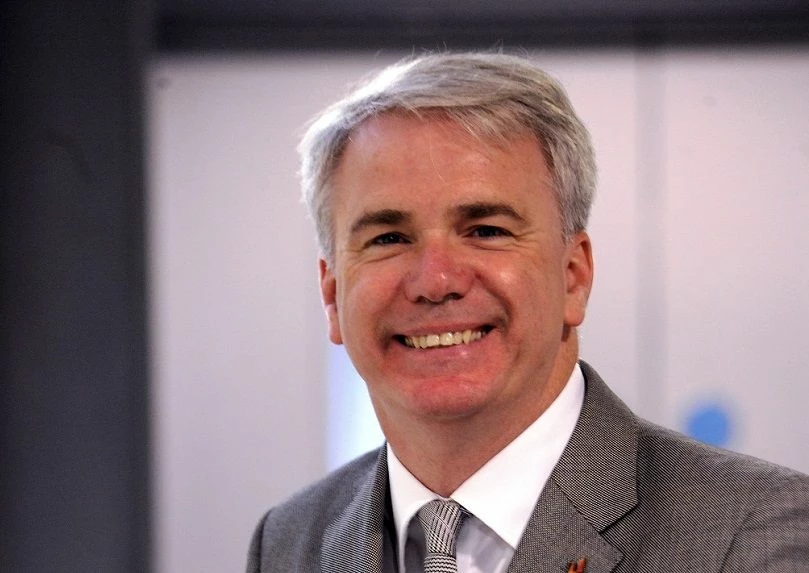
Partner Article
Enterprise is two-way street for University and business
Teesside University’s new Head of Digital Enterprise says he’ll be working closely with the area’s dramatically-growing businesses to create a ‘win win’ for the sector.
The university helps to develop digital businesses in the region through DigitalCity Innovation (DCI), which has launched nearly 200 companies in the sector, primarily in the Tees Valley.
Now Dr Michael Ryding of the University’s School of Computing aims to develop rewarding enterprise relationships with these, and other companies in the digital sector, generating knowledge transfers and consultancy opportunities.
He said: “The direct feedback provided from companies into the University will provide up-to-date information on the changing landscape of the front-line business world.”
“This feedback will then generate changes in our learning programmes creating highly-employable graduates that are equipped with the skills required to succeed.
“The knowledge available in this university is immense and finding ways to transfer that knowledge, through consultancy, development or internships creates a two-way street which returns information from the business world to reinforce our curriculum.”
Middlesbrough has a high proportion of small and medium enterprises (SMEs) and Michael is convinced that a mutual relationship can be enormously beneficial for both sides.
“We can provide help that might stop a company going under, or might help it to grow faster,” he said. “Both of these situations have a beneficial spin-off effect on the local economy.”
A key element of his role is to develop and raise awareness of two kinds of student-business relationship – Knowledge Transfer Partnerships (KTP) and Knowledge Exchange Internships (KEI).
In the first, graduates work with a company for a year or longer while receiving continuing academic support from the university. The internships last for a shorter period. In both cases fees and funding is dependent on the status and location of the host company.
“In one way, some companies see these as a year-long interview and the resultant take up rate for graduates is impressive,” said Michael.
“The business benefits from the graduates’ work while the graduates continue to learn. Meanwhile, the University benefits from its relationships with the business and also from the knowledge that the academic feeds back. Everyone wins.”
The University is now setting up an industry panel in the School of Computing with business leaders from the area.
“We’re particularly looking for people with experience in digital fields including graphics, games and animation, who can share their knowledge with us and give us their opinion on our curriculum,” said Michael
Middlesbrough’s growing national and international reputation as a hub for digital and creative industries is one reason why Michael was delighted to take up the role with the university.
“This region has a fantastic reputation in one of the fastest-growing and most rapidly-changing global industries,” he said.
“Through DCI, Teesside University helps enterprising graduates to get established in areas such as animation and games development - we don’t push them out into the world without support.
“Some will stay on Teesside and others move out onto an international stage in an exciting field that’s developing and changing every day.”
Michael spent ten years working for the Ministry of Defence and 25 in the financial sector. Most of those years were spent in a variety of IT roles that culminated in his most recent appointment as Enterprise Architect for AXA UK.
His business knowledge is bedding in comfortably with the more academic style of the university, and he feels it’s a fruitful combination.
“We have a different language - for example - I talk about products, while the university talks about courses or provision – but it’s the same thing, just terminology,” he said.
“There’s a world of value in combining the way we think about the University but from a business perspective.
“Enterprise has always been an important part of the University, but we’re now bringing that to the fore in a big way. We’re streamlining internal processes, identifying appropriate marketing, and visiting local businesses and business forums to talk to people about their needs.
“I want to understand what ‘keeps them up at night’ and how the university can make their business lives more productive”.
“In this University we have a deep understanding that the knowledge and intellect available here is desperately needed by local businesses and national organisations.
“We can help them through the difficult financial times we all share – and they can give the University, and our students, a great deal in return.”
This was posted in Bdaily's Members' News section by Ian Benet .
Enjoy the read? Get Bdaily delivered.
Sign up to receive our popular morning National email for free.








 £100,000 milestone drives forward STEM work
£100,000 milestone drives forward STEM work
 Restoring confidence for the economic road ahead
Restoring confidence for the economic road ahead
 Ready to scale? Buy-and-build offers opportunity
Ready to scale? Buy-and-build offers opportunity
 When will our regional economy grow?
When will our regional economy grow?
 Creating a thriving North East construction sector
Creating a thriving North East construction sector
 Why investors are still backing the North East
Why investors are still backing the North East
 Time to stop risking Britain’s family businesses
Time to stop risking Britain’s family businesses
 A year of growth, collaboration and impact
A year of growth, collaboration and impact
 2000 reasons for North East business positivity
2000 reasons for North East business positivity
 How to make your growth strategy deliver in 2026
How to make your growth strategy deliver in 2026
 Powering a new wave of regional screen indies
Powering a new wave of regional screen indies
 A new year and a new outlook for property scene
A new year and a new outlook for property scene